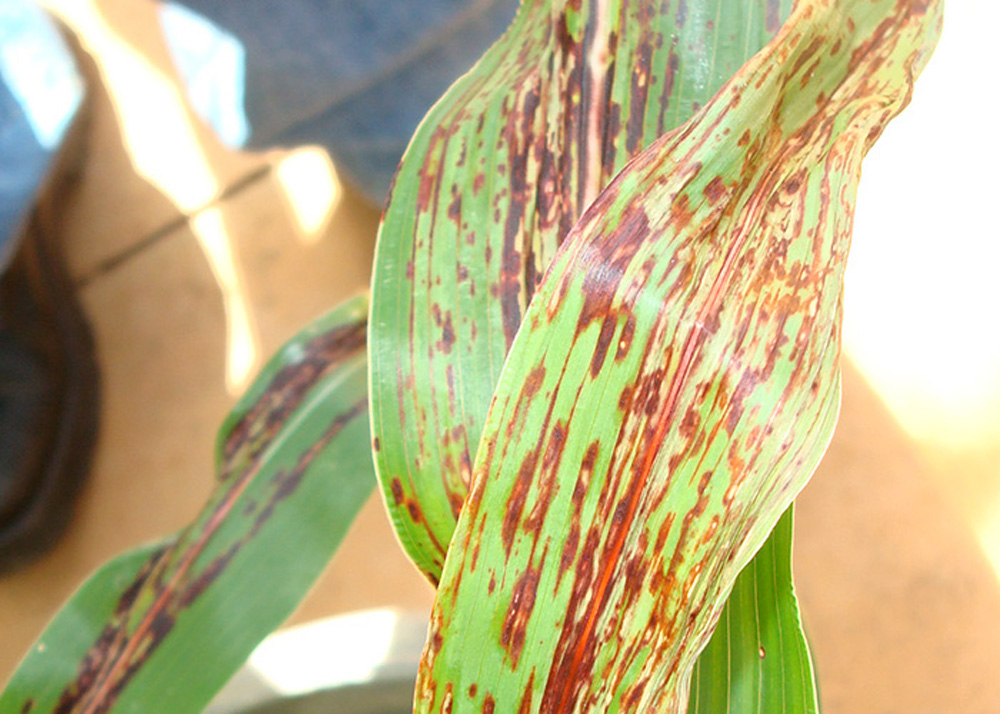
Johnsongrass Mosaic Potyvirus (Jgmv)
Johnsongrass Mosaic Virus (Jgmv)
Pathogen:
Virus
Type:
Risk:
INTERMEDIATE



DESCRIPTION
Pathogen description
Johnsongrass mosaic virus (JGMV) is a virus of the genus Potyvirus that primarily infects corn and other grasses. This pathogen is transmitted by aphids in a non-persistent manner, meaning that insect vectors can rapidly acquire and transmit the virus during feeding. JGMV survives on secondary hosts such as Johnson grass and other perennial grasses, from where it can spread to nearby corn crops. Once inside the plant, the virus replicates in the host cells, moving from cell to cell and eventually through the vascular system to infect the entire plant. The presence of aphids in the field is a critical factor for the spread of the virus, and the incidence of the disease can vary depending on the vector population and the environmental conditions that favor their activity.
Disease description
Johnsongrass mosaic Potyvirus infection in corn results in a series of symptoms that negatively affect the growth and yield of the crop. The disease manifests itself with the appearance of mosaic patterns on the leaves, which are characterized by alternating light and dark green areas.
- Appearance of chlorotic Taches on the leaves.
- Development of yellow bands or stripes along the ribs.
- Deformation and shortening of the leaves.
- Brown Taches or brown stretch marks.
- Reduction of plant growth.
- Necrosis of severely affected areas.
- Decrease in grain yield.

TEMPERATURE AND HUMIDITY
20°C - 30°C
60% - 90%

VOIES DE TRANSMISSION
Aphids, infected plants, contaminated plant material

Chemical treatments
CONTROL
There are no effective treatments against viruses, the treatments are focused on combating the insect or vector carrying the virus (SEE AVAILABLE TREATMENTS AGAINST INSECTS)
Treatments authorized in organic farming
There are no effective treatments against viruses, the treatments are focused on combating the insect or vector carrying the virus (SEE AVAILABLE TREATMENTS AGAINST INSECTS)
Biological control
-
Preventive treatments
There are no effective treatments against viruses, the treatments are focused on combating the insect or vector carrying the virus (SEE AVAILABLE TREATMENTS AGAINST INSECTS)
- Use of corn varieties resistant or tolerant to JGMV.
- Implementation of integrated pest management practices to control aphid populations.
- Use of specific insecticides to reduce the vector population.
- Regular monitoring of crops to early detect the presence of aphids and disease symptoms.
- Elimination of infected plants and host weeds such as Johnson grass.
- Crop rotation practices to interrupt the virus cycle.
- Maintain field hygiene and avoid the introduction of infected plant material.
- Use of physical barriers or trap crops to divert aphids from corn crops.
Recommendations
*The recommended treatments are recommendations based on the authorities' databases and do not replace in any way the guidelines established by the legislation of each country.





